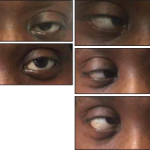The incidence of lupus nephritis in patients with systemic lupus erythematosus (SLE) has decreased over the past 50 years, according to a study from Gabriella Moroni, who works in the Nephrology Unit at Fondazione IRCCS Ca’ Granda Ospedale Maggiore Policlinico in Milano, Italy.1 Typically, renal involvement is part of the disease course for two-thirds of…








